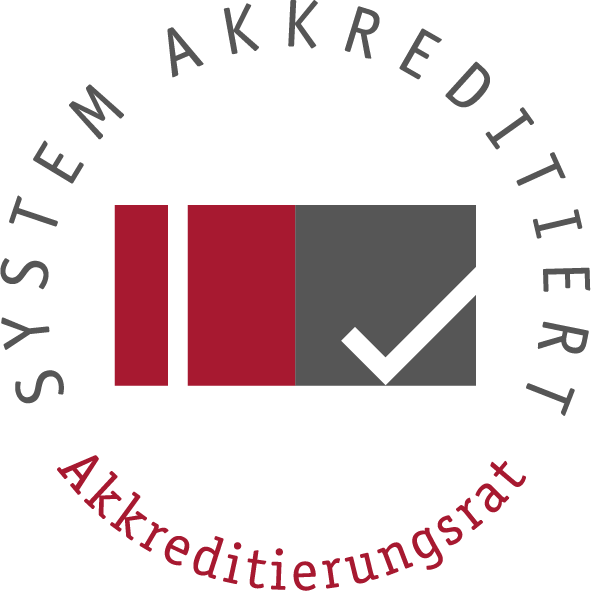Italian Language and Culture (M.A.)
The programme 'Italian Language and Culture', which can be studied as the subsidiary (minor) subject in a dual-subject Master's degree programme, aims to provide students with a deeper understanding of the Italian language and offers a comprehensive overview of Italian linguistics, and Italian literary and cultural studies. Students will learn to compare the Italian language and culture with other cultures in Europe using established academic methodologies. The subject area 'Italian Language and Culture' is a particularly good choice for students whose main subject of study is another national language or is in the field of cultural studies, as it provides a very useful complementary linguistic and cultural perspective.
Graduates who have studied 'Italian Language and Culture' as a subsidiary subject within their Master's degree are in a good position to take a broad range of career options. Familiarity with Italian culture is an important supplementary qualification in a great many areas of employment, particularly for those positions in business, academia or the public sector with a pronounced European focus. Graduates are well prepared for a broad range of jobs and careers in the publicly funded cultural sector, such as administrative or management positions, work in the media (television, the press, radio), in publishing houses and in educational institutions and academic and scientific organizations.
Kombinationsmöglichkeiten
Das Studienfach "Italienische Sprache und Kultur" kann nur als Nebenfach im Rahmen eines 2-Fächer-Masterstudiengangs gewählt werden. Die Kombination mit dem Masterstudiengang "Romanistik (Französisch oder Spanisch)" ist möglich, jedoch nicht mit dem Masterstudiengang "Romanistik (Italienisch)".
Studienbereiche
Das Studium gliedert sich in zwei Bereiche:
- Sprachpraxis
- Sprach-, Literatur- oder Kulturwissenschaft
Studien- und Prüfungsleistungen
Studierende müssen Studien- und Prüfungsleistungen im Umfang von insgesamt 27 Credit Points erbringen, die sich wie folgt zusammensetzen:
- 15 CP Sprachpraxis
- 12 CP Sprachwissenschaft oder Literaturwissenschaft oder Kulturwissenschaft
Requirements
Sie können zum Studium des Nebenfachs "Italienische Sprache und Kultur" zugelassen werden, wenn
- das von Ihnen gewählte Hauptfach eine Kombination mit dem Nebenfach "Italienische Sprache und Kultur" erlaubt und
- Sie im Besitz eines in Deutschland anerkannten Bachelorabschlusses sind.
Students can begin this programme at the beginning of the winter or summer semester. However, it is recommended that students begin studying in the winter semester. The application period runs to 31 August if you plan to begin studying in the winter semester and from the beginning of December to the last day in February if you want to start in the summer semester.
International applicants who do not have certified proof of proficiency in German must apply before 15 July if they plan to begin studying in the winter semester and by 15 January if they plan to start in the summer semester.
Applications for admission are submitted online via Saarland University's student information management (SIM) portals. If you have any questions about using the SIM portals, please check out our SIM Saarland help pages.
Please note that if you plan to study a dual-subject Master’s degree programme, you must also specify one main subject and one subsidiary subject. To find out which subject pairings are allowed, please refer to the table of permitted subject combinations. You can only enrol if you have been accepted for admission in both your main subject and your subsidiary subject.
Applicants whose pre-university education credentials were obtained in a country other than Germany
Applicants who do not have adequate proof of proficiency in German at the application deadline can apply as an external candidate to take the DSH language exam (Deutsche Sprachprüfung für den Hochschulzugang), which is the German language proficiency test for foreign applicants seeking admission to higher education, or they can apply for a place on the preparatory German course at Saarland University (ISZ Saar – International Study Centre Saar).
Please note that to pass the DSH exam for the purposes of admission to a Master's study programme, you will need to demonstrate an advanced level of German (equivalent to CEFR level C1). Applicants whose proficiency in German is lower than C1 can apply to join the preparatory German course.
Please also note that different deadlines apply for applicants who do not yet have the required level of proficiency in German (15 January for a summer semester start, 15 July for a winter semester start). Applications for admission to the Master’s programme will only be processed if they are submitted before the relevant deadline.
| Standard period of study | 4 semesters |
| Possible combinations | Subject combinations (in German) |
| Language of instruction | German and Italian |
| Italian language requirements | None |
| Restricted entry | No |
| Application period | Winter semester: beginning of June to 31 August Summer semester: beginning of Dezember to the last day of February |
| Tuition fees | Not applicable |
| Semester fee | See current fee structure |
Course adviser
Tatiana Bisanti
Saarbrücken Campus
Building C5 2, Room 3.29
Phone: +49 681 302-4300
t.bisanti(at)mx.uni-saarland.de
Central Student Advisory Service
Saarbrücken Campus
Building A4 4, Ground floor
Phone: +49 681 302-3513
studienberatung(at)uni-saarland.de
www.uni-saarland.de/studienberatung
Central Student Advisory Service
Saarbrücken Campus
Building A4 4, Ground floor
Phone: +49 681 302-3513
studienberatung(at)uni-saarland.de
Central Student Advisory Service

Accredited study programmes
Saarland University was one of the first universities in Germany to achieve Quality Assurance Accreditation and has held the Accreditation Council's official quality mark continuously since 2012.
Quality management
